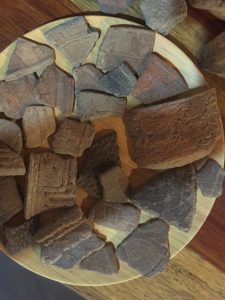Karina Custódio*
The creator of three albums, four indigenous festivals and a soccer championship, Haru Kuntanawa is the world leader of his people and presents himself first and foremost as a survivor.
He recalls that his people, native to the border between Brazil and Peru, in the state of Acre, suffered genocide in 1911. During the first rubber cycle [1877 to 1910], the dozens of villages of the Kuntanawa people were reduced to just one in a process of capture, enslavement and extermination,” he says.
Haru is the grandson of elders who witnessed the violence. He says that for a long time his people were not even recognized as indigenous and only left the domain of the rubber tappers some 80 years after the genocide, with the creation of the Juruá Extractive Reserve. But the dream of recovering their language and culture still faces an obstacle: the lack of demarcation of the indigenous territory.

In the village where Haru lives, his uncles discovered an archaeological site with fragments of artifacts used by the indigenous peoples (Photo: personal collection)
Without their land demarcated, the Kuntanawa people have no access to education or differentiated health, which makes it difficult to recover their language and exposes them to discrimination: Indigenous children and teenagers have already reported situations of prejudice in the school environment, coming from teachers and classmates.
Haru says that the struggle for the territory has been going on for 25 years. Even after a decision by the MPF (Federal Public Prosecutor’s Office) determining demarcation in 2018, the process has not been completed.
More than territory: reparation
Through ASCAK (Socio-Cultural and Environmental Association) and OPIRJ (Organization of Indigenous Peoples of the Juruá River), the Kuntanawa communities are seeking not only to demarcate their territory, but also to obtain reparations for the violence suffered during the genocide.
Led by Haru, the organizations are structuring a justice commission to record and diagnose the damage caused by the genocide and epistemicide.
“We want to involve the entire Brazilian state, so that we can measure all the impacts of the violence, transform it into a report and demand reparations that can restore our communities. I believe that this process will be a milestone in Brazil, in Brazilian politics, because we want more than our territory back, we want all the culture that was taken from us,” emphasizes Haru.